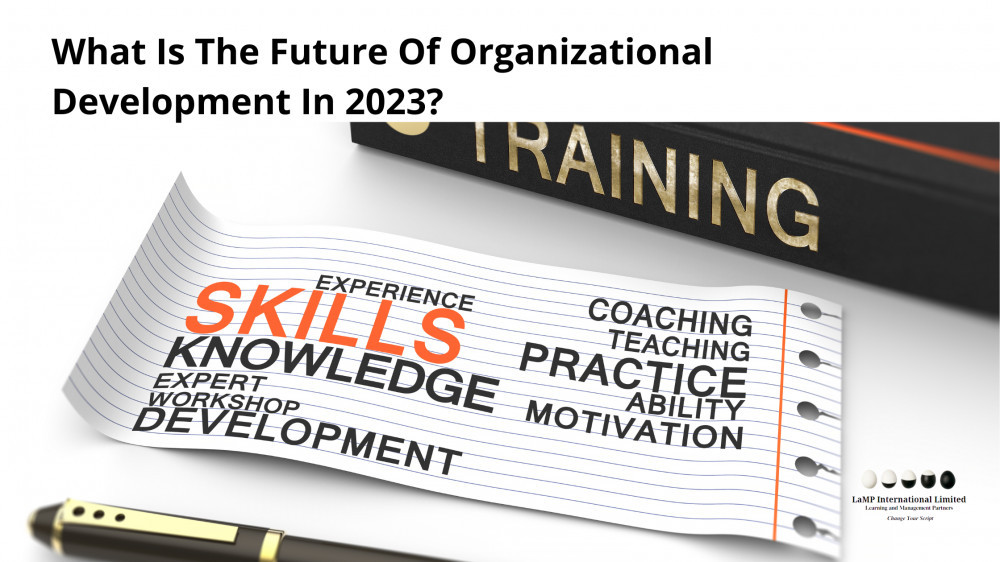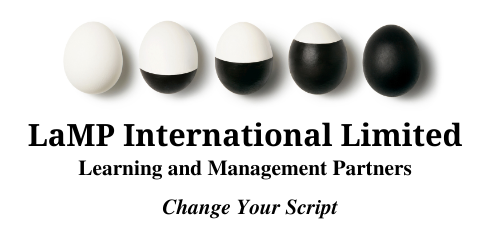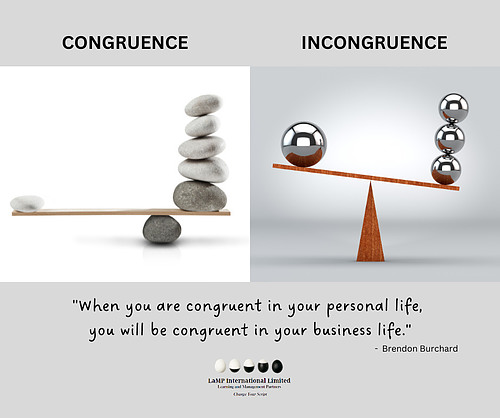
In October 2022, we made some bold predictions about the future of Organizational Development (OD). Those predictions earned us a Featured Snippet from Google.
What that indicates is that we are on the ball and on the mark when it comes to OD predictions. And we should be, given that it occupies so much of our work across the globe.
The relevance of OD was questioned and challenged in 2022. But, the discipline stood its ground and rose above the challenges that confronted it.
Companies that introduced effective OD initiatives and strategies are much better off because of them. Their footing is stronger now to walk confidently into 2023.
Let’s dive into what we see as the future of OD.
What Is The Future Of Organizational Development In 2023?
The future of Organizational Development (OD) in 2023 will be shaped by the seamless integration of change initiatives that marry self-motivation, ownership of personal and professional development and technology. People will continue to rise to the top of the priority list in organisations. Leaders, Managers and Human Resource Practitioners will be expected to become more empathetic, supportive and congruent with the needs and wants of their employees. A major contributing factor to this is the fact that more Baby Boomers are leaving the workforce.
Why is this significant?
Well, Baby Boomers (born between 1946 to 1964) have been managing organisations with more control. GenXers (born between 1965 to 1979) and Millennials (born between 1980 to 1994) are now occupying more management and leadership positions in the workplace.
Their styles and expectations are very different.
GenXers tend to be fair, highly competent, very straightforward and can even be described as brutally honest. They are not easily fooled and demand leadership that is congruent with thoughts, words and behaviours aligned.
Gone are the days of “doing as I say, not as I do.”
In 2023, OD’s focus is all about people and helping them to become more self-aware, self-confident and self-sufficient.
Additional Reading >>>> What Is Congruent Behaviour?
Do You Think Organization Development Will be Relevant In The Future?
The short answer is: “Yes!” Absolutely!
but, the proviso is that your Organizational Development interventions must be focused and sustainable. This will require more time to be spent on obtaining data and analyzing it.
With the proliferation of Artificial Intelligence (AI), tools and software there is no excuse for not having dedicated resources to provide real-time, on-time statistics and information to support decision-making.
Remember this though. It is critical that you ask the right questions and know what data you need.
Things are changing right in front of your eyes. Your data and decision-making could be redundant without you even being aware of that.
You have to be able to listen, observe and process on the fly. There is little time to “sit on it“. While you are doing that, others are speeding past you as they grab your expertise and resources, improve them and leave you in the dust.
What Role Will Organization Development Departments Play In The Future?
I have worked within an organisation, leading the OD function and, as a Management Consultant, I support the implementation of OD interventions, positioned externally.
Which one do I think is more effective?
This is a question that I am asked fairly often.
To answer that question, I need to put this belief on the table. OD interventions have better results when they are managed independently. It is difficult – not impossible – to achieve that independence and objectivity when you are buried in the sand.
It takes a special animal to lead any intervention that requires fairness, objectivity and independence when they are living, eating and sleeping on the organisation’s floor. Factors such as politics and conflict between the employer and the employee make leading and managing interventions from within VERY difficult.
OD interfaces directly with leadership development, talent management, learning and development and strategy implementation. Then there is the issue of who controls the purse.
Even if the Chief Executive Officer (CEO) does not come from finance, the role is often tightly managed or influenced by the finance function.
That will in turn determine the role that OD plays, how it is positioned and the results that its interventions are allowed to achieve.
Additional Reading >>>> Understanding The Role Of Employee Behaviour In An Enterprise Risk Management Definition
How Can Human Resources and Organizational Development Work Together?
A big chunk of OD’s role is the personal and professional development of employees in the organisation. All employees.
Effective OD initiatives are designed and implemented to facilitate organizational changes through humanistic and holistic approaches that place employees at the heart of processes.
The best changes happen when people own the purpose, process and result.
This makes it critical for Human Resources (HR) and OD to work seamlessly together. HR Practitioners who have a solid understanding of OD and how it can support their goals and objectives, are better able to mediate when conflict arises and manage internal gaps.
HR should be the “eyes and ears” of OD interventions, whether they are being led internally or externally.
If we are not able to directly with HR when we are leading OD interventions, more often than not, we would decline the engagement.
Too often HR allows itself to be used as a pawn and/or sacrificial lamb. This creates distrust and usually results in confusion, chaos and failure.
Further Reading >>>> Why Is The Human Resource The Most Important Of All Resources?
What Are The Challenges Of OD?
Although this requires an article – or two – or three – to answer it, I will touch on a few necessary points here.
The primary objective of OD is to help an organisation become more efficient and effective. And, while I am usually among the first to look towards technology, structure, systems and processes, I never lose sight of the fact that all these things are done through and by PEOPLE.
That is where the work of OD must begin and end.
In his book, “The Practice of Management“, Peter F. Drucker notes that: “Management is a multi-purpose organ that manages business and manages managers and manages workers and work.”
Call it what you will, management in its simplest form means getting work done through people.
Why this keeps getting lost, I do not understand.
If people are at the heart of OD.
If we get work done through people.
And if we truly want to support people in their efforts to become better, we must ensure that our OD efforts engage them, involve them and uplift them.
That, for me, is the biggest challenge facing OD and its Practitioners.
We must stop designing interventions for systems, processes and tools and THEN throwing them at people with a ‘sink or swim‘ intent.
What Are The Challenges To OD Practitioners?
There are three (3) main challenges I would like to direct to OD Practitioners in 2023.
1. Keeping Up With The Pace Of Change
There is no need for me to say that change is happening rapidly. It goes without saying. However, what is also a given is that many, if not most, people struggle to keep up with the pace at which things are changing.
Once upon a time, there were constants that helped to keep you grounded. Constants like the house you grew up in, how long you stayed in your job, the repetitiveness of the tasks you did at work, your co-workers, your spouse, and the corner shop in your neighbourhood.
Today, I may have to manage changes to all those things in one week!
That adds to the burden of (dis) stress.
2. Too Much Information
In 2022, we ask Client employees what their biggest challenge was when it came to Organizational Development. Eighty-seven percent (87%) of them said that there was too much information being thrown at them. Sixty-three percent (63%) of them said that the information caused them to become overwhelmed and disengaged.
This should be of concern to organisations and OD Practitioners in particular.
We should always do your best to ensure that the information being rolled out is enough, relevant and supports the learning required to effect the change desired.
3. Too Much Engagement, Too Little Trust
There is engagement and then there is E N G A G E M E N T. People crave the latter. The kind of engagement that involves and includes them. The kind of engagement that they can believe and trust.
I keep in touch with a manufacturing Supervisor I met in the UK last year. She impressed me when she said that organizational engagement had become “. . . like Tik Tok. Not everyone has it, gets it, believes it or is interested in it.”
That hit home.
For engagement to be effective people must trust it. People must trust you. You must be believable and that means you must be genuine.
If a spade is a spade, call it. As I shared in number two above, information is everywhere. It is easy to find out what the truth really is.
What you say and what it is must be congruent.
Additional Reading >>>> How Can Congruent Communication be Achieved?
Some Closing Thoughts . . .
The future of OD lies in an organization’s ability to effectively communicate with their employees and help them become better, perform seamlessly and increase profits.
OD is about people.
Yes, as we focus on the learning, development and growth of our employees, we will make improvements to the tools, systems and processes. However, for OD interventions to be sustained and to have long-term success, it must be driven by people.
Put people first.
If they are involved in the problems, they know the solutions.
Trust them.
Support them.
Be genuine.
A Little About The Author
Hi! I am Cassandra, the Chief Cook and Bottle-Washer at LaMP International Limited.
Thank you so very much for taking the time to read this article. I trust that you have enjoyed reading it and that it helped you to better understand where Organizational Development is heading in 2023.
I have been working in Organizational Development for over 20 years. My post-graduate qualifications are in Organizational Behaviour. I am truly passionate about helping people become more congruent. The more congruent you are the more unstoppable you become in life.
I no longer see congruence as a skill, science or art. To me, it is a way of life. It is at the heart of all the OD work that I lead.
My work has impacted industries such as Energy, Oil & Gas, Manufacturing, Media and Management Consulting in roles that took me from a staff position all the way to the E and C suites.
When I am not travelling the world working with Clients, I am having fun looking at the world through my 12-year old daughter’s eyes.
Reach out to me if I can assist you in any way and help you to Change Your Script!




Such a very interesting information. They are really nice content. I like your blog post. Thank you for sharing good information.
Thank you very much for your feedback and kind words.
They are appreciated.
Please let me know if there are any topics that you would like us to explore.
Kind regards,
Cassandra